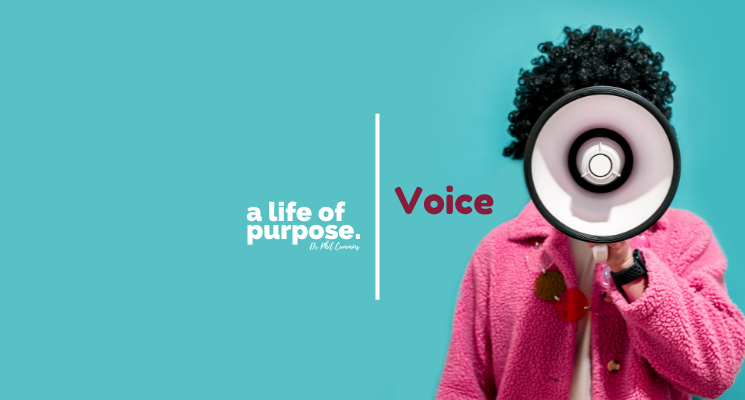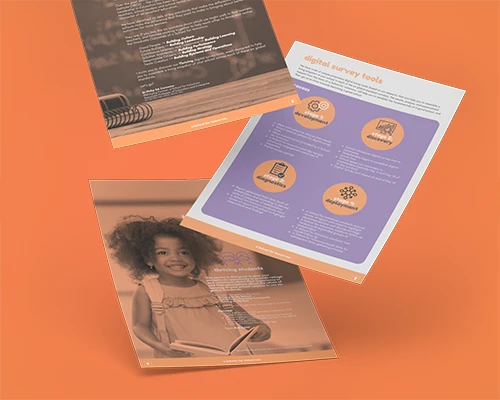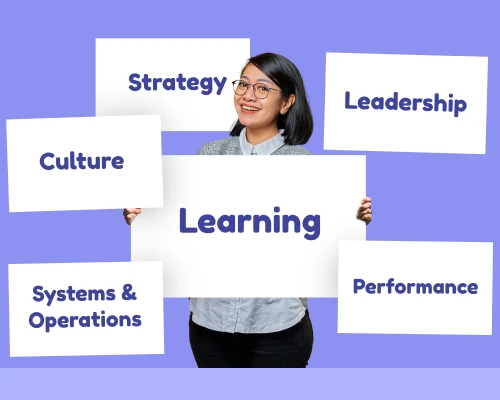.jpg?height=400&name=image_123650291%20(1).jpg)
Dr Phil Cummins
May 15, 2024 | 9 minute read
Be A Game Changer
Panel Q&A: Through the Lens of Leaders: Innovation in Global Education, Department of Education International 2024 Conference, Brisbane 13-14 May 2024
Promotion
a School for tomorrow's
Game Changers: Leading Today’s Learning for Tomorrow’s World
The world is changing – and rapidly. If we want to foster young people’s ability to learn, live, lead and work in that changing world, the way we approach education and leadership in schools must change too.
Buy NowCould you share a little bit about your approach to leadership?
Be You
We teach who we are and we lead from the core of our being. You need, therefore, to lead from the inside-out.
First, your leadership begins with who you are. You ask and answer fundamental questions: who am I? Where do I fit in? How can I best serve others? Whose am I?
You need to become the best version of yourself as a leader. You need to grow in your capacity to influence, inspire, direct, and motivate others to come together willingly and achieve a preferred future for all.
Second, your leadership flows into who you want to become. You need to become the best version of yourself as a leader. You need to grow in your capacity to influence, inspire, direct, and motivate others to come together willingly and achieve a preferred future for all.
Third, our research with educational leaders and our Game Changers podcast guests (like Pasi and Nicole), tells us that to respond to this challenge of service, you need to draw on the character of curiosity, compassion, courage and conviction to act as a game changer in a deliberate, targeted, and intentional fashion*. This means you aligning vision with intention and means to achieve better outcomes for more learners with:
- Leadership that strengthens
- Leadership that informs
- Leadership that orientates
- Leadership that focuses
- Leadership that aligns
- Leadership that enriches
And you can learn more about these capabilities of leadership in action in our book, Game Changers: Leading Today’s Learning For Tomorrow’s World, published by Amba Press**.
Phil, you are an educator by trade and conviction, to quote your bio. You have worked with schools across the world, what is the current state of education, globally, and how does it, differ, if at all, from what we’re seeing in Queensland?
Be Purposeful and Personal
When I conduct research and consult with hundreds and hundreds of schools all around the world, there’s one thing that really characterises successful teaching in today’s learning for tomorrow’s world: great teachers deliberately confront the complexity of our world by designing intentional learning relationships and personalising (both individually and collectively) how they are teaching our students the character, competency and wellness to thrive in it.
This is happening despite the increasingly imposition of seductively reductive and patently impersonal one-size-fits-all approaches, especially those which emphasise pedagogies of coercion and control which are masked as evidence-based scientific approaches to learning when, in fact, they’re anything but that. A playbook to scaffold science-informed and evidence-based approaches that support teacher professional judgment and the growth of adaptive expertise and self-efficacy? Yes! A scripted list of mandated rules based on “The Science of Whatever” that is imposed inflexibly with a combination of evangelical zeal and narrow-minded judgmentalism which produces, at best, knowledge-rich but submissive compliance? No. This is not today’s learning for tomorrow’s world.
Great teachers deliberately confront the complexity of our world by designing intentional learning relationships and personalising (both individually and collectively) how they are teaching our students the character, competency and wellness to thrive in it.
Instead, great teachers around the world are using evidence and emerging understandings about a wide range of sciences judiciously and in context. They’re co-creating learning processes that help students to develop the character, competency and wellness they will need to thrive in today’s and tomorrow’s world.
This is exemplified in teaching and learning that amplifies the voice, agency and advocacy of every student. That’s an education that’s truly personal.
Your comments around student voice really resonate – how do we promote this and what role do our school leaders and our systems play in this?
Be A Difference
My Game Changers co-host Adriano Di Prato would say, “every student is home to a unique life.” We need to recognise that every learner matters; it’s a fundamental difference from the schools of previous generations, schools of yesterday as opposed to schools for tomorrow.
Both ethically and economically, therefore, our world needs each of our learners to be equipped through a sense of belonging with a voice that tells a story that is both authentic to themselves and honours their obligations to others.
We need them to be empowered with an agency that allows them to test possibility and exercise a wide range of complex capabilities.
As leaders and systems, we need to show the curiosity, compassion, courage and conviction needed to bring together all of our people into communities of inquiry and practice that are dedicated to better outcomes for more learners.
We need them to be enabled to exercise an advocacy for the other that marks their journey from selfishness of a child to the selflessness of an adult who has found their calling and is ready to lead a life that’s both worthwhile and well-lived.
As adults, our role is to model and coach and scaffold the character, competencies and wellness our students will need to thrive in relationships of character apprenticeship where they develop increasing adaptive expertise and self-efficacy through their voice, agency and advocacy.
As leaders and systems, we need to show the curiosity, compassion, courage and conviction needed to bring together all of our people into communities of inquiry and practice that are dedicated to better outcomes for more learners.
And in doing so, we need to recognise that we need use our own voices to speak to a bold hope and deliberate and compelling rationale for every piece of our stewardship of people and place and planet. After all, as our CIRCLE Global Educational Research Program has shown, it’s this sense of purpose that really makes the difference for our students and for ourselves.
Let’s talk technology. How can education systems adapt to meet the needs of learners in an increasingly digital and interconnected world?
Be Playful
I think each one of us in schools has a choice: to resile from technology instinctively or to play with it and build it into what we do normally and naturally as teachers who are properly preparing students for a life that’s worthwhile and well-lived.
Our profession doesn’t have a great track record with the willing adoption of technology. There’s been too much fear and intransigence that has characterised our response to the world around us and the way that technology has brought fundamental change to the way we learn, live, lead and work in this world.
We have a moral imperative for our schools to be ecosystems that allow students to rehearse for a technologically enhanced life. At the same time as ensuring that our schools are technologically enhanced, we need to complement this by making sure that our schools are human centred communities that are people and place and planet conscious and intentionally purposeful about what they do.
I think each one of us in schools has a choice: to resile from technology instinctively or to play with it and build it into what we do normally and naturally as teachers who are properly preparing students for a life that’s worthwhile and well-lived.
Our job is too important for this to be left up to chance; we need to develop mastery of how best to prepare our students to grow, make progress and succeed in conditions and with technologies that are so different in so many ways from the childhoods of earlier generations.
In particular, I’m encouraged by so many of our colleagues who, supported by schools and leaders who are creating the culture of trust and psychological safety in which creativity flourishes, are playing in the space of a whole range of emerging technologies including artificial intelligences that are coming to influence everything we do in daily life.
As educational systems, we need a framework of prudent governance and safeguarding, and a commitment to the professional learning that will allow our teachers to shape today’s learning for tomorrow’s world through pedagogies, curriculum, assessment and reporting with and within AI that are generated (like all the best learning, leadership and character development) from the inside-out.
As I wrote in a position paper on The Role of AI in a School for tomorrow. that you can access on our website aschoolfortomorrow.com recently:
“We need to curate an ethos that is increasingly open to testing both the emerging potential of AI and the enduring relevance of what we currently do in schools to support the preparation of our students to thrive in their world.”
So what can we do? Build an individual and collective efficacy for teaching that is characterised by dispositions of reflection, honesty, hope and openness. And play with the technology!
What emerging trends or do you anticipate will have the most significant influence on education in the foreseeable future?
Be Relational At An Intimate Scale
I’m really enjoying hearing my colleagues talk to the influence of capabilities, technologies, etc. I also loved hearing Pasi Sahlberg talk earlier about the need for innovation over improvement and the importance of play, and the encouragement of Minister Di Farmer for us to be brave and courageous leaders who are passionate about providing engaging and rich opportunities for all students to grow and learn locally and globally. All of these things are very current in educational discourse internationally.
I’d like to suggest you also take notice of something a little different, a development I’m seeing about which we also need to be aware. There’s an increasing demand by parents overseas and here in Australia for an education for their children that is pursued within the intimacy of the family and village connections and relationships that have underpinned so much of human history and development.
So, while most of our educational systems seek more ways to create mass economies of scale as we become bigger in every way, many families are turning to intentionally small micro-schools by preference. Small schools have always been and still are part of our school systems; but, habitually, we allow them to become larger and more complex, mirroring the dominant trends of our world.
We need to be cognisant of the choices of an increasing number of families who are preferring a smaller scale which is counter-cultural. For them, a small school that more accurately reflects their values and where they believe their children will be known and cared for properly is paramount.
There’s an increasing demand by parents overseas and here in Australia for an education for their children that is pursued within the intimacy of the family and village connections and relationships that have underpinned so much of human history and development.
We talk of hubs and spokes and nodes in a globally connected world that seems overwhelming and dehumanising in its complexity. The question is being asked by more and more: what if our schools might be kept small enough to be genuinely human? To be places of belonging where children can fulfil their potential and go on to do good and right in our world? And even if our schools are big, what can we do to build schools within our schools where our children are known, cared for and loved?
Today, we've delved into discussions about systems, often finding ourselves entrenched within them, fostering a somewhat insular perspective. How can we inspire our leaders to break free from this mindset, fostering innovation and leadership on a global scale? And why is this shift in perspective crucial for addressing the challenges of our interconnected world?
Be Intentionally Creative
Let’s look at this from the inside-out. What and how are you creating in your life? Where are you creating? The kitchen? The shed? A hobby? That’s all good – but what and how are you creating in your job?
I want to be really practical here. If you’re going to innovate and create in your job, you need to be an innovator and creator in your job.
This means you need to take yourself and your time as an innovator and creator seriously. When I coach school and system leaders, we focus a lot on the mechanics of how they spend their time. You need to do this as well. Take the time to plan your day and your week to include intentionally reflective and playful spaces in which you can explore and create.
You need to model how to set a priority for innovation by doing it yourself. Innovation isn’t something we fit in to our schedules; it’s germane to who we are and must be something that flows out of our disposition to be game changers.
And you can do it! Start by putting a value on innovation in your role: even if it’s 10% of what your role should encompass, then that’s a whole day a fortnight that you need to block out to do your reading, your connecting to others, your wandering and wondering about the “what ifs?” Anything but the daily grind of stuff that you habitually allow to come first and dampen and even extinguish your capacity to create.
If you think you can’t do this, then you need to question how you’re approaching your role. You can’t and shouldn’t be so indispensable that you never get to the creative function of your leadership. There are others around you who can allow you to close the door, or to step outside so that you can loosen up, free your mind and do the unencumbered thinking needed to move the story of your school from yesterday to today to tomorrow.
You need to model how to set a priority for innovation by doing it yourself. Innovation isn’t something we fit in to our schedules; it’s germane to who we are and must be something that flows out of our disposition to be game changers.
If you could give a call to action to our audience that centers around educational leadership and global education, in one sentence, what would it be …
Be A Game Changer
I mentioned just then the story of yesterday, today and tomorrow. It’s the tomorrow part that I want to emphasise. We are not called to preside over the perpetuation of the status quo. We are called to be game changers.
Each one of us needs to see in ourselves the potential to be and become a game changer. It’s hard work, it’s good work and it’s the only work that will genuinely allow us to make that difference we all came into teaching to make.
Game changers are those brave pioneers whose sense of purpose and innovative ideas are shaping the landscape of future-fit schooling. They don’t wait for permission. They are courageous enough through their leadership to make real change in their learning communities.
This change is directed towards fostering the wellness of each young person in their care so that they can build the necessary character and competency to thrive in our new world environment.
Each one of us needs to see in ourselves the potential to be and become a game changer. It’s hard work, it’s good work and it’s the only work that will genuinely allow us to make that difference we all came into teaching to make.
And if you want to learn more about the stories of game changers in education and beyond, listen to our Game Changers podcast – now in its sixteenth season with over 750,000 episode downloads across more than 75 countries.
* You can listen to the Game Changers podcast here.
** You can purchase your copy of Game Changers: Leading Today’s Learning For Tomorrow’s World (now published by Amba Press) through Amazon here, Barnes and Noble here, and Booktopia here.
Related Content

Article
Tell Your Story
Products & Services
Discover our 'Thriving' Digital Survey ToolsLike what you’ve read?
Let’s keep the conversation going.
